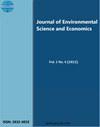A review on the integrative approach for economic valuation of forest ecosystem services
引用次数: 9
Abstract
Forests have the most biodiversity and provide vital ecosystem services. They offer numerous forest-related services, some of which can be commercialized. This improves social, cultural, health, and scientific life. Nonmarketable and intangible services are discounted because people think they're endless and free. Humans have changed the natural and social worlds through using resources and improving well-being. Public and private decision-makers often compete over natural capital. The loss of biodiversity, climate change, and global warming are interconnected with social development and ensuring an acceptable level of well-being for the majority of humanity, making it difficult for a single, individual approach to estimating the value of these goods and services to generate and support decisions and policies in these complex areas. The complexity of ecosystem products and services requires an integrated assessment with cutting-edge technologies and approaches using a pluralist framework of heterogeneous values. This evaluation should encompass costs and benefits of several ecosystem commodity and service applications. These usage' effects on economic, social, and cultural advancement are also crucial. The extensive and thorough enthronization of natural ecosystems can affect the amount and quality of ecosystem goods and services; thus, it is vital to quantify the complicated inverse effect from civilization to nature. Studies show that incorporating sustainability sciences approaches into an integrative assessment approach may be vital to environmental policy in the future.森林生态系统服务功能综合经济评价方法研究进展
森林拥有最多的生物多样性,并提供重要的生态系统服务。它们提供许多与森林有关的服务,其中一些可以商业化。这改善了社会、文化、健康和科学生活。不可销售的和无形的服务被打折,因为人们认为它们是无穷无尽的和免费的。人类通过利用资源和改善福祉改变了自然和社会世界。公共和私人决策者经常在自然资本方面展开竞争。生物多样性的丧失、气候变化和全球变暖与社会发展和确保大多数人类可接受的福祉水平是相互关联的,这使得单一的、个人的方法很难估计这些商品和服务的价值,从而在这些复杂的领域产生和支持决策和政策。生态系统产品和服务的复杂性要求采用异质价值的多元框架,采用尖端技术和方法进行综合评估。这种评估应包括若干生态系统商品和服务应用的成本和收益。这些用法对经济、社会和文化进步的影响也至关重要。对自然生态系统的广泛和彻底的改造可以影响生态系统产品和服务的数量和质量;因此,量化从文明到自然的复杂反向效应是至关重要的。研究表明,将可持续性科学方法纳入综合评估方法可能对未来的环境政策至关重要。
本文章由计算机程序翻译,如有差异,请以英文原文为准。
求助全文
约1分钟内获得全文
求助全文
来源期刊

Journal of Environmental Science and Economics
Environmental Economics-
自引率
0.00%
发文量
0
期刊介绍:
Journal of environmental science and economics (JESCAE), ISSN: 2832-6032 is an open access peer-reviewed journal that considers articles and reviews articles on all aspects of environmental economics.
Aim and Scope
Journal of Environmental Science and Economics is an international scholarly refereed research journal that aims to promote the theory and practice of environmental economics, Sustainability research, technological innovation, and economics. A broad outline of the journal''s scope includes; peer-reviewed original research articles, case, and technical reports, reviews and analyses papers, short communications and notes to the editor, in interdisciplinary information on the practice and status of research in environmental science, sustainability, technological innovations, and economics.
The main aspects of research areas include, but are not limited to; Environmental pollution control and abatement technology, Sustainable and economic Development, sustainable consumption and Sustainability, Environmental and sustainability assessment, transport and fate of pollutants in the environment, concentrations and dispersion of wastes in air, water, and non-point sources pollution, atmospheric pollutants and trace gases, environmental impact assessment, industrial ecology, ecological and human risk assessment; improved energy management and auditing efficiency and environmental standards and criteria.
 求助内容:
求助内容: 应助结果提醒方式:
应助结果提醒方式:


